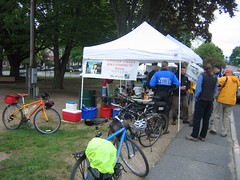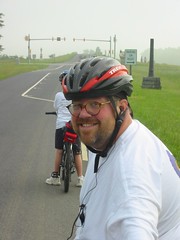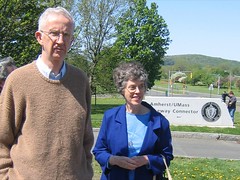General Faculty Meeting
Today there was an emergency General Faculty meeting. We considered four motions. All were approved by the faculty more-or-less unanimously.
The Officers of the MSP and the Rules Committee met yesterday to draft the motions. I'm quite pleased with how they turned out. The first one was amended slightly in the meeting. We had tried to keep them free of issues of "personality", but the audience insisted that the vote of no confidence refer, not only to the actions of the Board, but also to the actions of the President with respect to the firing of the Chancellor.
As part of the committee that had drafted the motions, I was asked to meet with the President before the meeting. He is a gifted speaker and very persuasive -- I tried to go into the meetings with an open mind and simply listen. I was almost persuaded. But during the General Faculty Meeting, Ernie May drew people's attention to the issue of what was discussed during the "Trustee Dinner" on May 3rd. The President responded and claimed that there were no deliberations on the policy during that time. Missy Lieblum, the student trustee from the campus, took the microphone and point-by-point denied his statement. She said that, in fact, substantive deliberations were made at this meeting and trustees were encouraged to "raise any concerns now" rather than to bring them up during the actual board meetings. She said that trustees spent a long time discussing in detail the kinds of changes the One University plan would entail -- she said she was embarrassed to admit that much of their interest, or concern, centered only on whether or not there would be a single football team. When President Wilson dismissively said that we could take those concerns to the Attorney General, if we wanted to pursue them further (since he would not), the audience lost its cool for the only time, and devolved into catcalls.
Wilson again leaves the campus seriously wounded, with his policy in tatters. He's been put into an untenable position by events. He won't say what actually happened, but I suspect that when Lombardi heard of this plan, he resigned in protest and that his action precipitated the series of events we've seen.
It does appear that we'll get an independent commission to review the events that led up to this debacle and to propose a path forward. I still hold the trustees accountable, but after today I don't have as much sympathy for Wilson as I had had previously -- he's fully implicated in the whole sad sequence of events.
- Read more about General Faculty Meeting
- Steven D. Brewer's blog
- Log in to post comments



